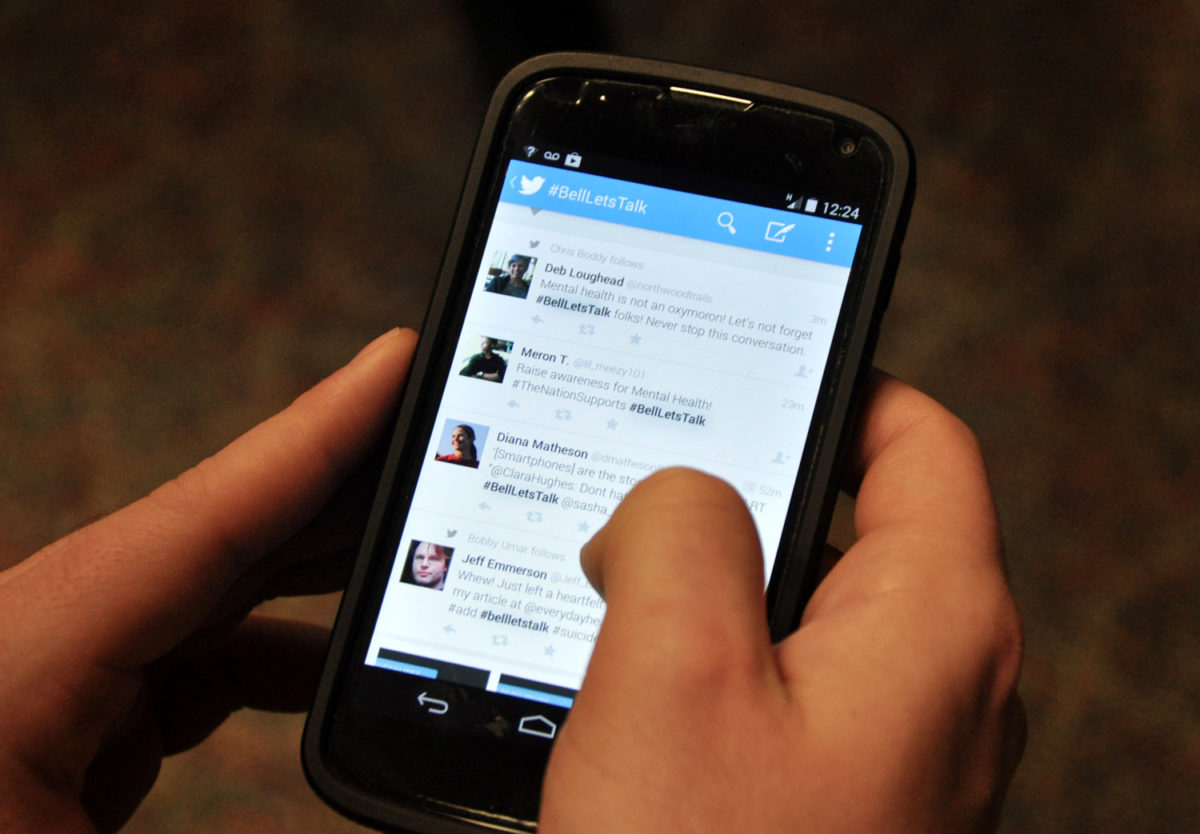
Bell’s annual Let’s Talk day bested its own record again, raising almost $5.5 million for mental health initiatives. St. Thomas University stepped up to support the telecomm giant’s campaign.
STU criminology professor Susan Reid’s Children and Youth at Risk class focused on ways to promote mental health awareness leading up to the big day.
Jordie Shephard is a third year student in the class. On top of working with the class to create the Facebook page STUdents Against Stigma and the Twitter account @STULetsTalk, he created a poster and advertised for the cause at a STU women’s basketball game.
“My hope for this campaign is that more people talk about mental health all year round and not just on Jan. 28,” he said.
Last Tuesday Bell donated five cents to mental health initiatives for every call or text sent from a Bell phone, and every Facebook share and tweet using the hashtag #BellLetsTalk.
Much of the donation goes into a community fund, from which organizations and hospitals can apply for a grant worth up to $50,000 to improve access to mental health care and education.
Jean-Étienne Sheehy is a St. Thomas journalism student who has struggled with mental health. He feels the campaign has the right idea in encouraging people to talk about it, but many people missed the point.
“It should be more than a campaign to get tweets and text messages,” he said. “It should be something we do face-to-face, as a society, and I think it’s important that the conversation happens year round. We must look at the bigger picture. Sometimes the problem isn’t necessarily to talk about mental health, it’s to wake up in the morning and get out of bed.”
Dr. Reid’s class intended to pick up where the Bell campaign left off. Mental health facts of the day were created by the class and distributed online and on campus. Students involved also helped to spread the word at campus events and the social media campaign shared pictures and videos with students.
Jason McKnight, administrator of STUdents Against Stigma, plans to continue updating the site indefinitely.
“Let’s face it, the majority of the people who are most affected by mental health stigmas… are more likely to be caught on Facebook than on the Statistics Canada or Canadian Mental Health Association websites,” he said.
He hopes to continue the conversation surrounding mental health year round.
